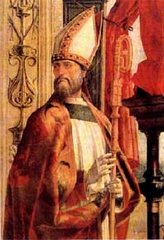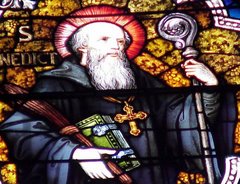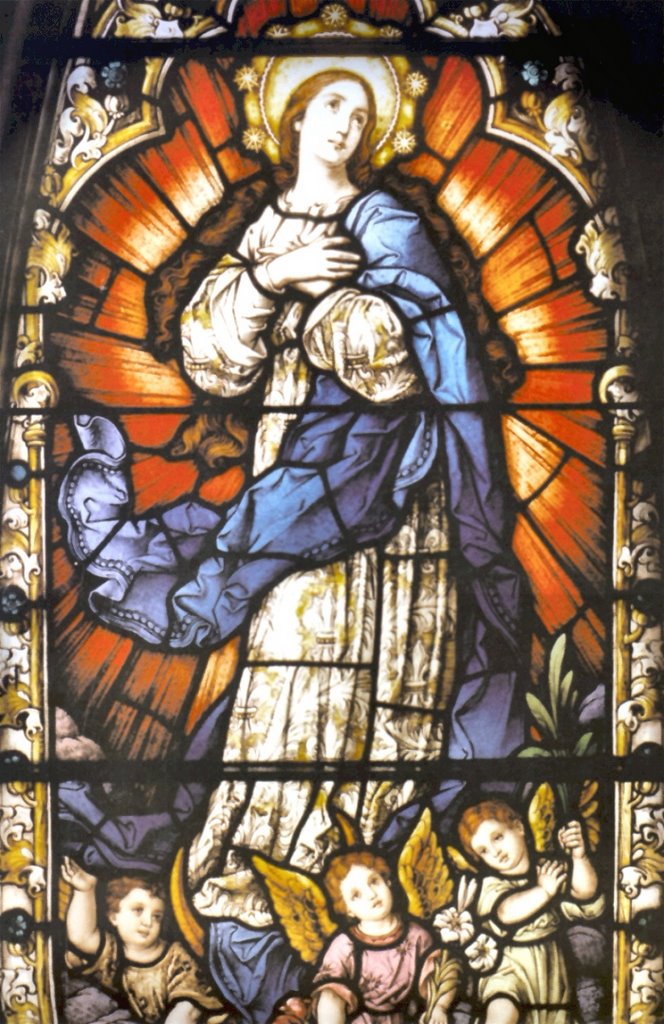Liberalism is a heresy in the doctrinal order because heresy is the formal and obstinate denial of all Christian dogmas in general. It repudiates dogma altogether and substitutes opinion, whether that opinion be doctrinal or the negation of doctrine. Consequently, it denies every doctrine in particular. If we were to examine in detail all the doctrines or dogmas which, within the range of Liberalism, have been denied, we would find every Christian dogma in one way or another rejected--from the dogma of the Incarnation to that of Infallibility.
"Nonetheless Liberalism is in itself dogmatic; and it is in the declaration of its own fundamental dogma, the absolute independence of the individual and the social reason, that it denies all Christian dogmas in general. Catholic dogma is the authoritative declaration of revealed truth--or a truth consequent upon Revelation--by its infallibly constituted exponent [the Pope]. This logically implies the obedient acceptance of the dogma on the part of the individual and of society. Liberalism refuses to acknowledge this rational obedience and denies the authority. It asserts the sovereignty of the individual and social reason and enthrones Rationalism in the seat of authority. It knows no dogma except the dogma of self-assertion. Hence it is heresy, fundamental and radical, the rebellion of the human intellect against God."
"When we come to the practical order, Liberalism is radical immorality. Morality requires a standard and a guide for rational action; it postulates a hierarchy of ends, and therefore of order, within whose series there is a subordination of means to the attainment of an ultimate purpose. It therefore requires a principle or fundamental rule of all action, by which the subject of moral acts, the rational creature, determines his course and guides himself to the attainment of his end. In the moral order, the Eternal Reason alone can be that principle or fundamental rule of action, and this Eternal Reason is God. In the moral order, the created reason, with power to determine its course, must guide itself by the light of the Uncreated Reason, Who is the beginning and end of all things. The law, therefore, imposed by the Eternal Reason upon the creature must be the principle or rule of morality. Hence, obedience and submission in the moral order is an absolute requisite of morality. But Liberalism has proclaimed the absurd principle of the absolute sovereignty of human reason; it denies any reason beyond itself and asserts its independence in the order of knowledge, and hence in the order of action or morality. Here we have morality without law, without order, freedom to do what one pleases, or what comes to the same thing, morality which is not morality, for morality implies the idea not only of direction, but also essentially demands that of restraint and limitation under the control of law. Liberalism in the order of action is license, recognizing no principle or rule beyond itself."
"But its most fatal shaft is in its plea for "liberality of mind." This, in its own eyes, is its cardinal virtue. "Intellectual freedom from dogmatism" is its boast, a boast in reality the mask of ignorance and pride. To meet such an enemy requires no ordinary courage, which must be guarded by a sleepless vigilance. When encountered, it is obligatory upon the Catholic conscience to resist it with all the powers of the soul. Heresy and all its works are sins; Liberalism is the root of heresy, the tree of evil in whose branches all the harpies of infidelity find ample shelter; it is today the evil of all evils."
(Liberalism is a Sin, Ch. 3)
"In this latter case, sin against faith, so grave in itself, acquires that degree of gravity which constitutes heresy. It then contains all the malice of infidelity and becomes an express protestation against the teachings of faith or an express adherence to a teaching which is condemned as false and erroneous by the Faith itself. Besides the deadly sin against faith itself, it is accompanied by hardness of heart, obstinacy, and the proud preference for one's own reason over the reason of God Himself. Hence, heretical doctrines--and works inspired by them--constitute the greatest of all sins, with the exception of formal hatred against God, of which only the demons in Hell and the damned are capable. Liberalism, then, which is heresy, and all the works of Liberalism, which are heretical works, are the gravest sins known in the code of the Christian law." (Liberalism is a Sin, Ch. IV)
Subscribe to:
Post Comments (Atom)

















No comments:
Post a Comment